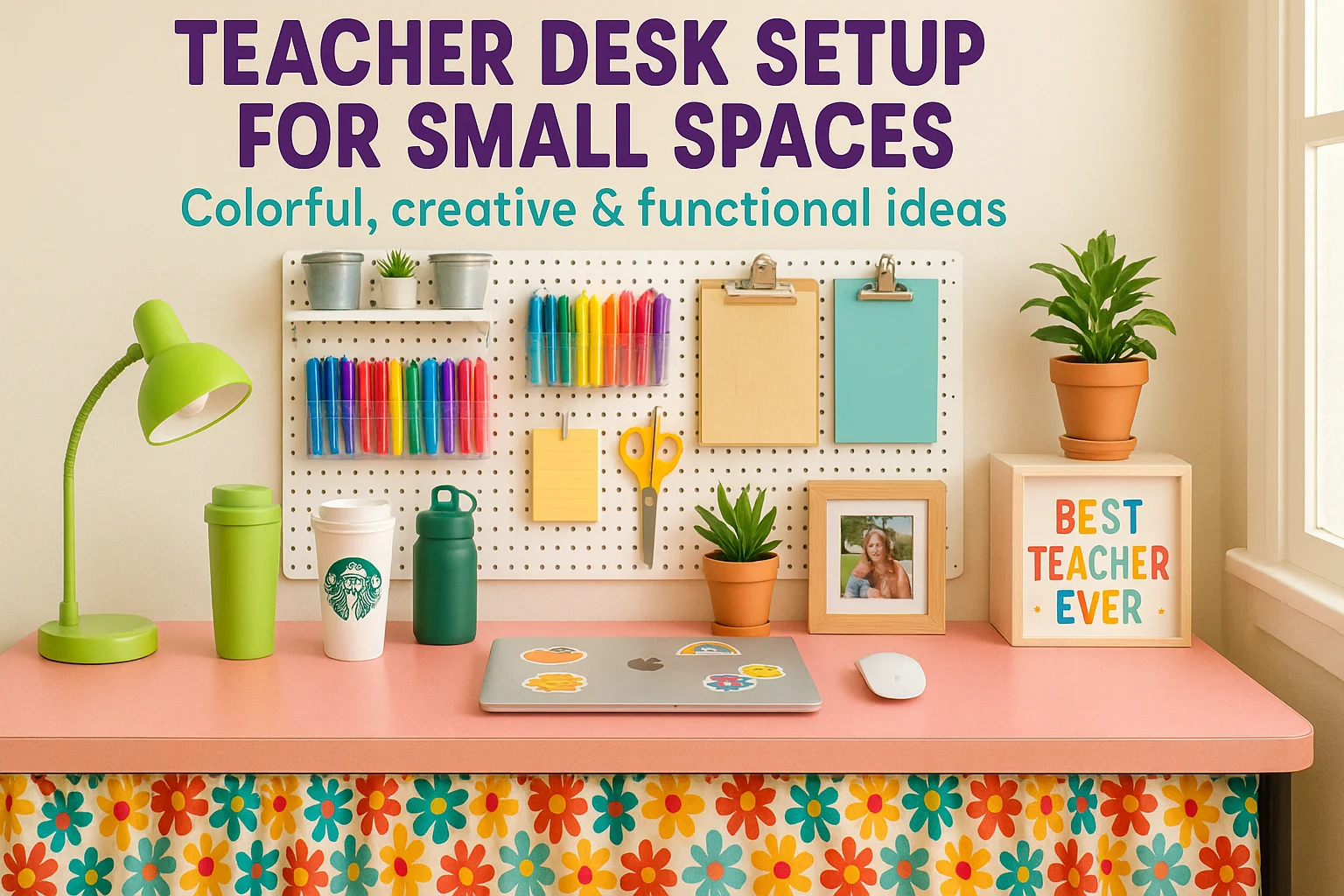Your cart is currently empty!

How to Leave Teaching and Start Your Next Chapter
You’ve given teaching everything, but now it’s time for something new. If you’re feeling stuck, exhausted, or unsure of what’s next, this guide is for you. We’ll cover why leaving feels so hard, the career paths that suit former teachers, and how to start your transition. You deserve a job that doesn’t drain you…
This post may contain affiliate links. At no cost to you, I may earn a small commission if you click on any affiliate link within my blog.
The Moment You Know It’s Time to Go
You’re sitting in the car outside school, gripping the steering wheel, willing yourself to walk in. The thought of quitting your teaching job consumes you, yet you’re uncertain about how to leave teaching and embark on a new path.
Or maybe you’re at home on Sunday night, watching the clock tick down, feeling that familiar, gut-punching dread settle in.
You love teaching – or at least, you used to. But now? You’re exhausted, overworked, and wondering if this is it for the rest of your life.
You used to care. You still care. But now, you’re just surviving – dragging yourself through each lesson, each staff meeting, each pointless initiative that makes your job harder.
If this sounds painfully familiar, it’s because I’m there. And I know so many teachers who are there right now.
The question is, how do you actually leave teaching?

Some days, it feels like I’m living two lives – the teacher everyone expects me to be and the person I actually am, who just wants to feel free.
I wake up already counting down the hours until I can leave, but even when I’m home, I’m not really free. My mind is still tangled up in lesson plans, admin tasks, and that endless feeling of being behind.
I know I’m ready for something different, something that actually fits the life I want – but getting there feels like a slow unraveling, one thread at a time.
1. The Silent Struggles No One Talks About
Leaving teaching isn’t just about finding another job. It’s about untangling yourself from an identity, a routine, and, let’s be honest, a guilt trip that keeps so many teachers stuck.
Here’s what no one tells you about trying to leave:
- You start feeling like a bad teacher. You used to go the extra mile. Now, you’re printing off worksheets because you just can’t put energy into making a hands-on lesson. You’re constantly exhausted, but part of you wonders if it’s just you – if you’re somehow failing where others are thriving.
- You feel trapped by money. You stare at your payslip, wondering how you’re going to replace that salary. You’ve run the numbers a hundred times, and every time, it feels impossible. What if you leave and regret it?
- You have moments of hope – only to be pulled back. One day, you’re fired up and picturing a life with no grading and no lesson planning. The next day a student says, “You’re the best teacher,” and suddenly, you feel like you’re making a huge mistake.
Sound familiar? These are the thoughts that keep teachers in a job they no longer love. But recognizing them is the first step to breaking free.

2. Your Teacher Skills Are More Valuable Than You Think
Here’s the biggest myth teachers believe: that their skills only belong in a classroom.
Reality check: You are an expert in communication, problem-solving, project management, conflict resolution, public speaking, and about a hundred other things that companies pay good money for.
A few real-world examples:
- Curriculum writer: You already create resources – why not get paid to do it on your terms?
- Corporate trainer: Businesses love hiring former teachers to train employees because you know how to engage people.
- Instructional designer: If you’ve made a PowerPoint and taught a lesson, you’ve done 90% of what instructional designers do.
- Freelance writer: You’ve written so many emails, reports, and lesson plans. There’s a whole world of freelance writing that needs your skills.
Your job now? Stop seeing yourself as “just a teacher” and start recognizing that you have highly marketable skills.

3. Making the Leap: A Practical Transition Plan
Step 1: Find Your Exit Path
- Start browsing LinkedIn job listings – not to apply, just to see what’s out there.
- Join Facebook groups for teachers transitioning out. Read their success stories.
Step 2: Get Your Resume Ready
- Rewrite it without education jargon. Instead of “created engaging lessons,” say “designed and delivered training programs to diverse learners.”
- Highlight leadership, problem-solving, and data-driven decision-making – employers love these.
Step 3: Test the Waters
- If possible, start a side hustle – freelance tutoring, selling resources, blogging, anything to dip your toe into non-teaching income.
- Consider a part-time role in another field before making the full leap.
Step 4: Prepare Financially
- Start saving a “career change fund” to cover a few months of expenses.
- Look into alternative health insurance or benefits if you’re in a country where that’s a concern.

4. Overcoming the Emotional Side of Leaving
Teachers don’t just fear leaving – we grieve it.
- The guilt: You’ll worry about your students. You’ll feel like you’re letting your colleagues down. Here’s the truth: schools will replace you. But you are not replaceable in your own life.
- The identity crisis: Teaching has defined you for years. It’s okay to feel lost for a while. But you are so much more than your job title.
- The fear of regret: You might second-guess yourself. That’s normal. But staying in a job that’s draining the life out of you out of fear? That’s not the answer.

5. Steps to Take When You’re Ready to Leave Teaching
Financial Planning for Your Transition
Before you quit teaching, it’s essential to make sure you’re financially prepared. This will help reduce stress as you make your move.
Actionable Steps:
- Create a savings plan: Aim to save at least 3-6 months’ worth of expenses. This gives you a cushion to fall back on while you explore other opportunities.
- Evaluate your current spending: Track where your money is going each month. Cut back on unnecessary expenses to build your savings faster.
- Set a monthly budget: Break down your income and prioritize essential expenses, like housing and food, to ensure your savings last during your transition.
- Consult a financial advisor: If you can, talk to someone who can help you understand how to budget once you leave your teaching salary behind.
Exploring Career Options
Leaving teaching opens up a world of possibilities. The key is finding a career path that excites you and fits your skills.
Actionable Steps:
- Identify your interests: Start by listing what you love to do outside of teaching. What are your hobbies? What skills do you have that could transfer to another field?
- Explore new industries: Look into industries that align with your passions. Consider fields like content creation, coaching, writing, or nonprofit work.
- Research online courses: If you feel like you need more qualifications for a new role, start researching online courses that can help you get there.
- Network with others: Join online groups or LinkedIn communities for people transitioning out of teaching. Learning from others’ journeys can give you clarity.
The Resignation Process
Once you’re ready to leave, understanding the formal resignation process is vital for a smooth exit.
Actionable Steps:
- Write your resignation letter: Keep it professional and polite, explaining your decision to leave without burning bridges. A simple template would be: “I am writing to formally resign from my position as [position] effective [date].”
- Review your contract: Check if you have any obligations like notice periods or non-compete clauses. Understanding these can prevent surprises later.
- Notify your principal early: Give your employer ample time to make arrangements for your departure. This is not only courteous but also helps with transition planning.
Mental and Emotional Preparation
Leaving teaching is a big emotional shift. Preparing for the mental challenges is just as important as the logistical side.
Actionable Steps:
- Acknowledge the fear: It’s normal to feel scared or uncertain. Journal about your fears and remind yourself of why you’re making the change.
- Find a support system: Surround yourself with people who support your decision. Join online communities of people who’ve transitioned out of teaching for encouragement.
- Practice self-compassion: Give yourself permission to feel nervous, but also celebrate your courage to make a change. You’re taking control of your future.
Networking and Support
Making connections with people who’ve already transitioned from teaching will help you feel more confident in your decision.
Actionable Steps:
- Join Facebook groups or LinkedIn: Look for communities focused on career changes, teachers leaving the profession, or people pursuing passions outside of teaching.
- Attend workshops or webinars: Sign up for events that can help you build new skills and meet people who’ve made the transition successfully.
- Hire a coach or mentor: If you’re unsure where to start, working with a career coach can provide the personalized support you need.
Practical Steps for Transitioning
The key to leaving teaching with confidence is creating a clear plan. Here’s how to break it down:
Actionable Steps:
- Set a transition timeline: Decide on your ideal last day of teaching and map out the steps you need to take before then (e.g., wrapping up projects, informing your colleagues, etc.).
- Start applying for jobs: If you’re looking for a new career, begin sending out applications while you’re still employed. Even if it’s just to get a feel for the market.
- Get organized: Make sure your resume is updated to highlight transferable skills. Tailor it for roles outside of teaching.
- Prepare for interviews: Practice talking about your teaching experience in a way that translates to other industries. Highlight your skills in communication, leadership, and problem-solving.

6. Encouragement for the Road Ahead
Here’s what I know for sure:
- You are not alone.
- You are not a failure for wanting more.
- You can find work that pays well, values your skills, and doesn’t drain your soul.
And if you need support? I’m on this journey too. Let’s do this together.
Take the First Step Today
You don’t have to quit tomorrow. But you do have to start.
- Browse job listings.
- Update your resume.
- Talk to someone who’s done it.
Every small step matters. And I promise, there is life after teaching.




